Purdue Center for Early Learning finds new research PURPOSE
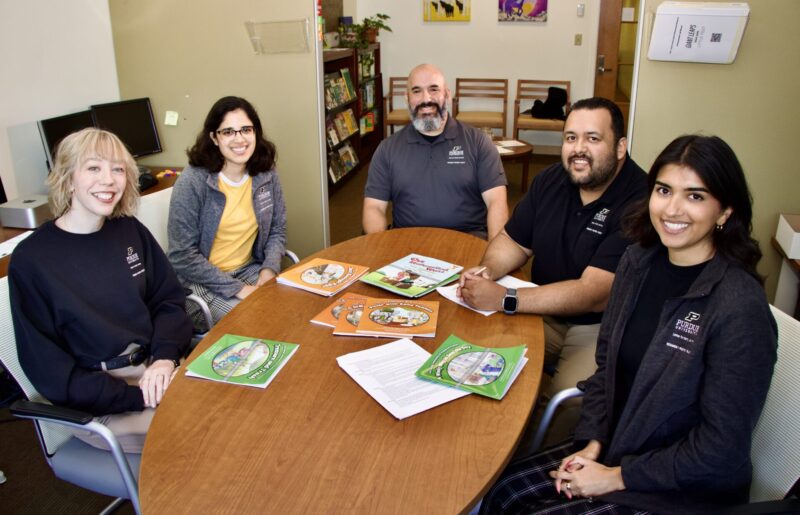
David Purpura, center and professor in the Purdue University Department of Human Development and Family Science, sits in the Purdue Center for Early Learning with the four PURPOSE postdocs, from left, Jasmine Ernst, Sona Kumar, Salvador R. Vazquez and Angelina Joy.Tim Brouk
Written by: Tim Brouk, tbrouk@purdue.edu
The Purdue University Center for Early Learning (CEL) is pushing the integration of early STEM and non-STEM education research with PURPOSE.
The Purdue University Research Program on STEM Education (PURPOSE) postdoctoral training initiative assembled four postdoc researchers from across the United States for collaboration and mentorship opportunities.
Based in Purdue’s College of Health and Human Sciences’ Department of Human Development and Family Science (HDFS), the quartet of early career scholars has academic backgrounds and drive for exploring and improving early STEM education in the United States.
Funding for PURPOSE was obtained by David Purpura, director of the CEL and professor of human development and family science, and his HDFS colleagues Sarah Eason, Cammie McBride, Rob Duncan, Jenn Finders and Valerie Knopik via a $1.25 million National Science Foundation institutional training grant. Purpura said he wanted to move past the traditional postdoc experience, which can often be solitary work on a single project, and replace it with an immersive experience full of collaboration and interaction.
Early education topics PURPOSE has explored so far include school readiness skills, joint development of STEM and non-STEM skills, antecedents and contributors to racial and gender differences in early STEM development, and early childhood educational quality. Although the success of PURPOSE will, in some ways, be measured by publications, project development, professional trainings, conference presentations and job placements, it will more importantly be measured by the valuable early career research experiences, interdisciplinary collaboration and the PURPOSEful energy these four early career scholars take with them in their next pursuit of academic excellence.
Sona Kumar
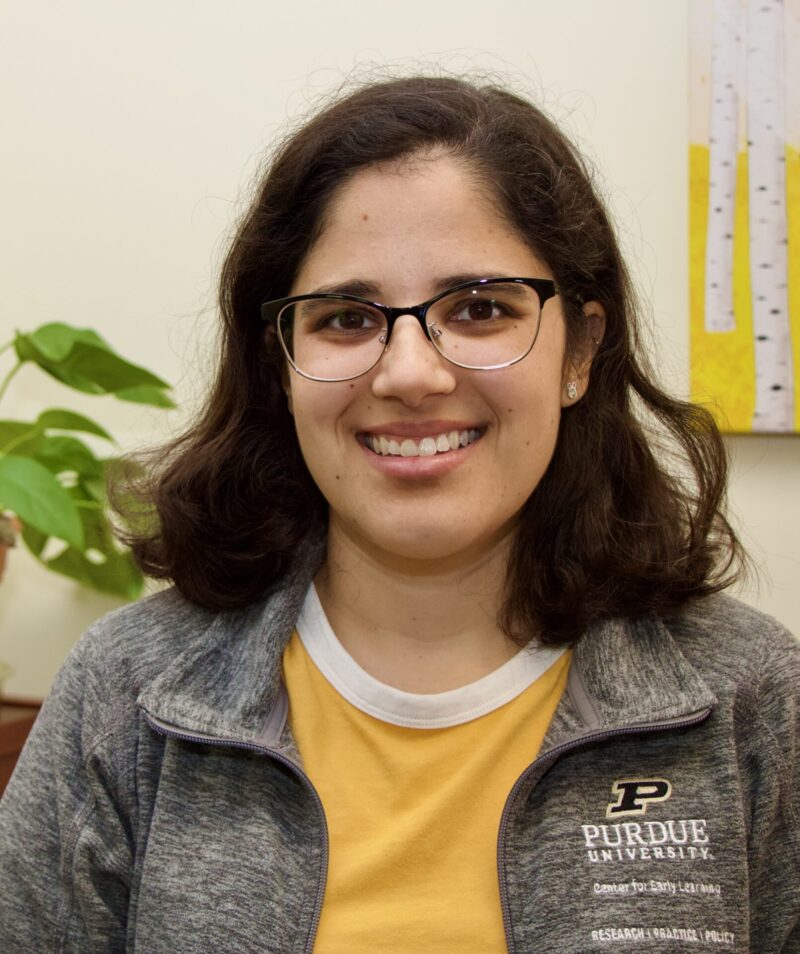
PhD from: Boston University
Research interests: Early STEM education and motivation in early childhood, early learning for children in underrepresented populations
On PURPOSE: “All of us are approaching similar questions from slightly different angles. With a lot of postdoc (opportunities), it will just be you working on a grant that a professor has, but with this one, we really get to collaborate with each other and kind of pursue some of our own research ideas and passions.”
Research and Undergraduate Mentorship: Kumar’s research focuses on encouraging children’s early participation and sense of belonging in STEM through tools like storybook reading. For Kumar’s last year, she will be teaming up with Purpura, and introducing undergraduate students to the process of research. Kumar wants them to get an early research experience while providing mentorship during their early semesters at Purdue.
“That’s definitely something that’s important to me,” Kumar said. “I also had really great mentors as an undergrad, so I want to pay it forward. And it’s energizing to get their fresh perspectives on research.”
Jasmine Ernst
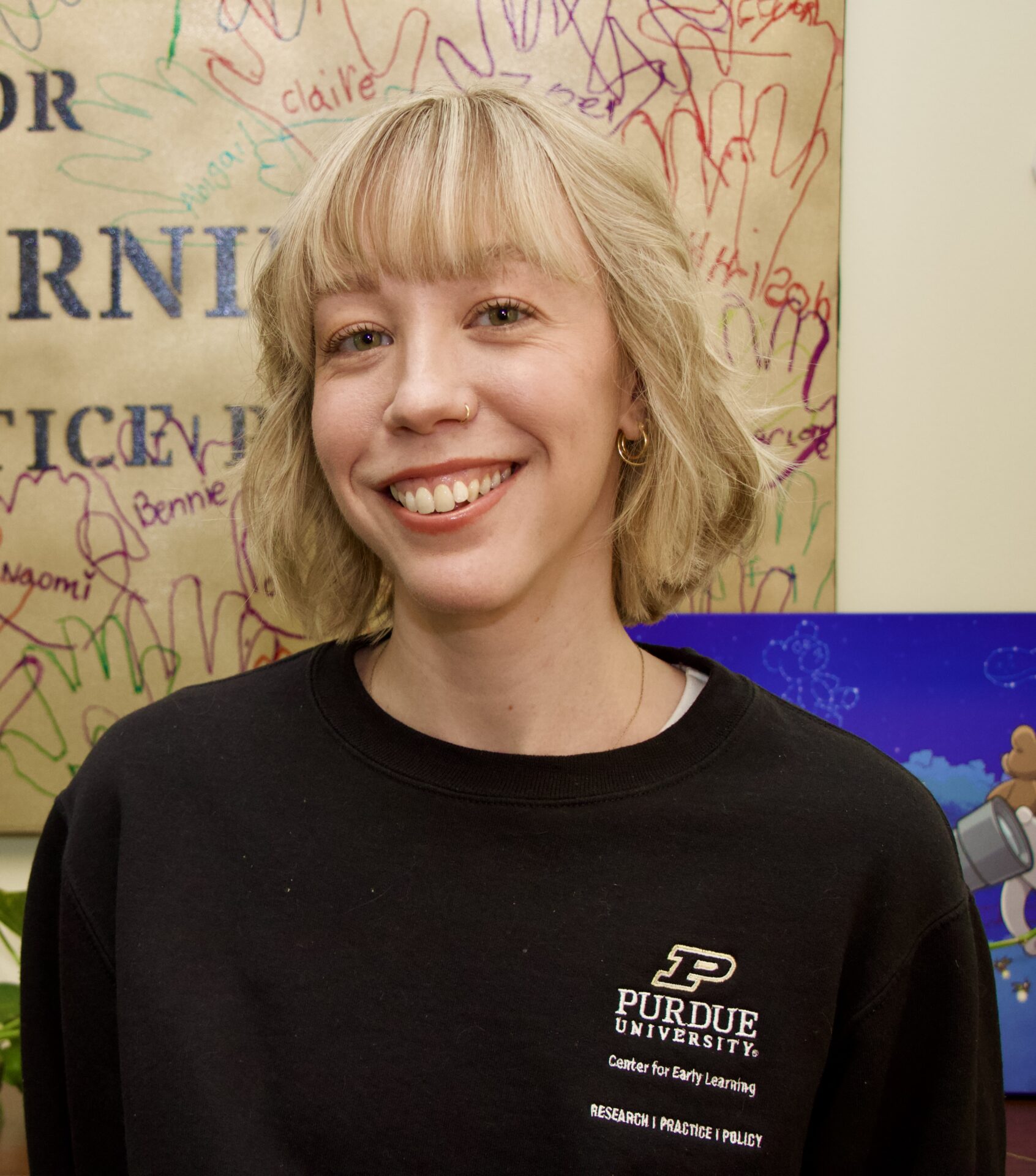
PhD from: University of Minnesota
Research interests: Early math and science, executive function development
On PURPOSE: “We all have a particular interest in STEM. Having a group of people in the department doing the same type of work fosters new ideas and collaborations, which is beneficial while we are at Purdue and moving forward in our careers. I really enjoy working in a cohort. I never envisioned that when I thought of a postdoc. Having a cohort is more common in grad school, but (the members) rarely beyond. I’ve felt really supported by having people in the department to talk to who are in the same career stage.”
Executive Function and STEM research: Ernst’s PURPOSE experience has accelerated interests she brought with her to Purdue: the connections between math, science and executive function — cognitive skills used to intentionally evaluate our thoughts, feelings and actions — and opportunities to improve these skills in early childhood.
Angelina Joy
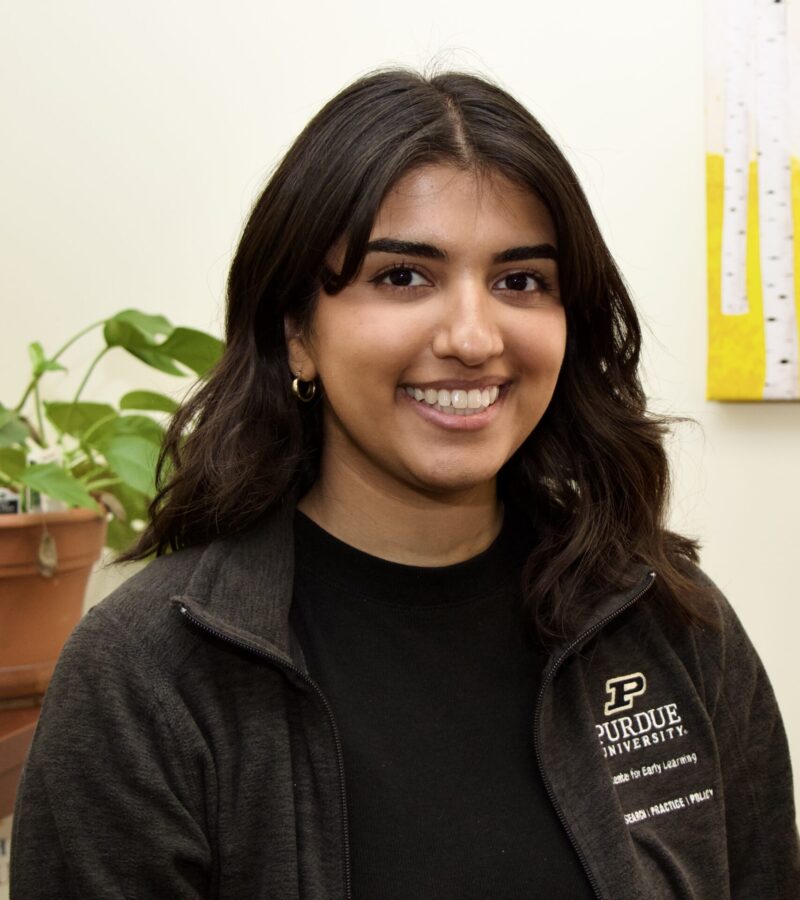
PhD from: North Carolina State University
Research interests: Stereotypes and underrepresentation in STEM, Early STEM Education
On PURPOSE: Joy has done work focusing on children’s and adolescents’ STEM perceptions and motivation, but the PURPOSE postdoc opportunity allowed her to expand this work to preschool children to understand the impacts of STEM stereotypes in early childhood. Joy is currently collaborating with Kumar on a storybook content analysis on gender and racial stereotypes in preschool children’s math storybooks to understand the images children see in early childhood that may impact their perceptions of mathematics.
STEM foundation: “This is a great opportunity to see how we can help create a foundation of STEM skills that are going to be relevant for children throughout their schooling and also start changing attitudes towards STEM at an early age before college when we see those disparities in STEM. One of my longer goals is to develop ways in which we can help underrepresented children maintain interest in STEM and have more opportunities to participate in STEM.”
Salvador R. Vazquez
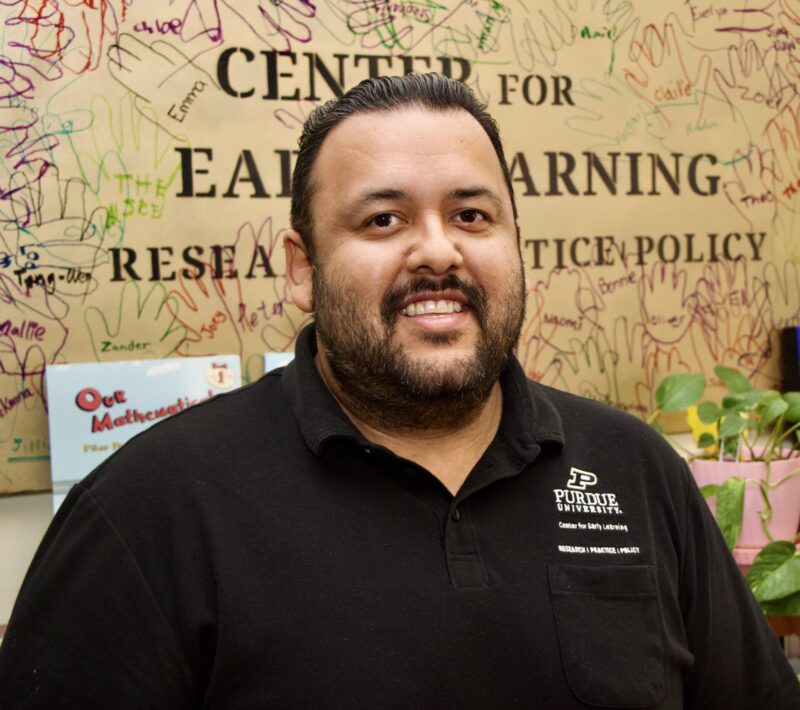
PhD from: UCLA
Research interests: Social environments and cognitive development, race-based stress and learning, parental/family involvement
On PURPOSE: “The main reason I was interested in this postdoc position was to prepare myself to one day develop studies that look at learning across the early life span (early childhood to late adolescence). By coming here to Purdue, I have the opportunity to expand my scope of research to that early childhood period.”
Environmental connections: Vazquez is currently pursuing his interests by investigating the home math environment and how parents interact with their children around math-based activities.
“Although my work in grad school focused on college students, the work I do now is important because the cognitive skills that children develop early in life lay a foundation for their educational development up through college,” he said.
Support the Center for Early Learning.
Discover more from News | College of Health and Human Sciences
Subscribe to get the latest posts sent to your email.